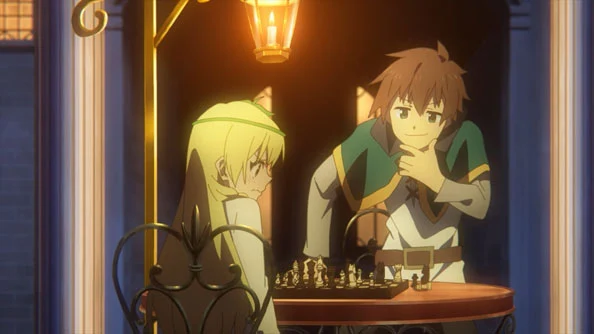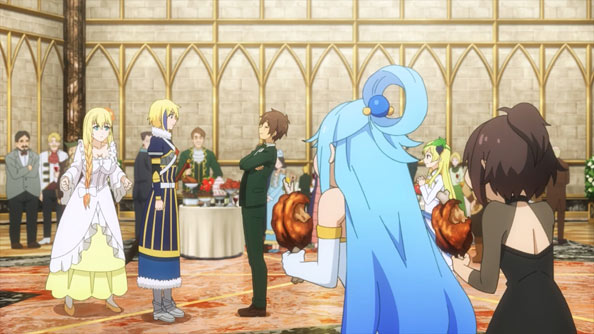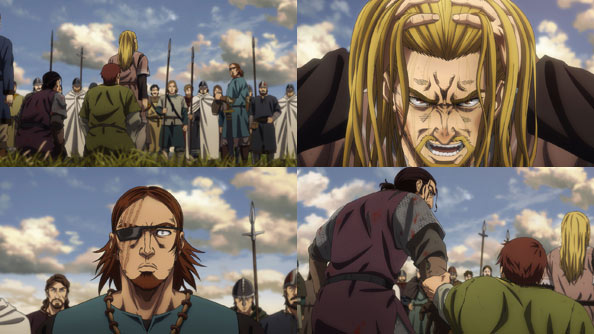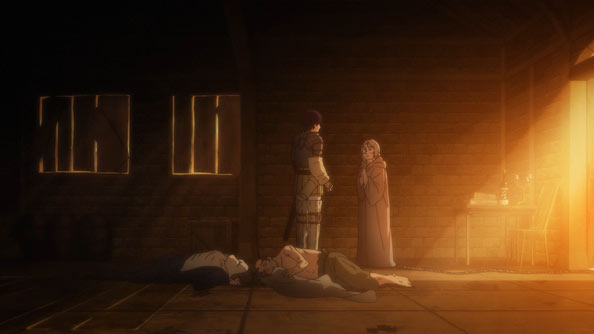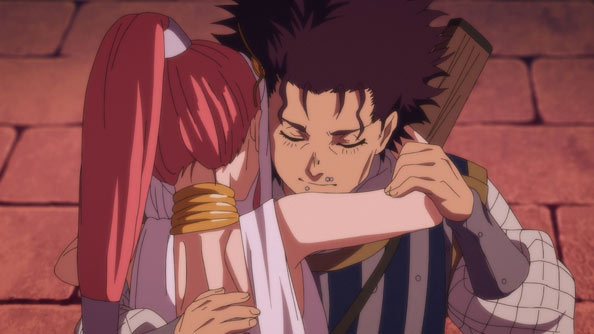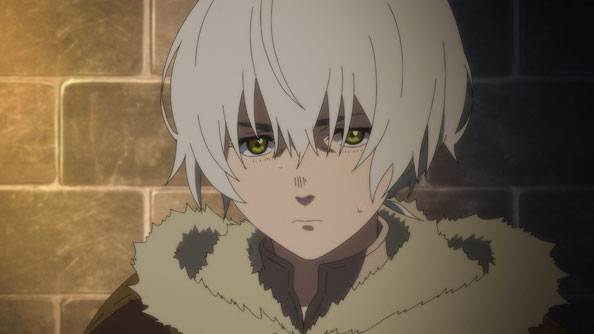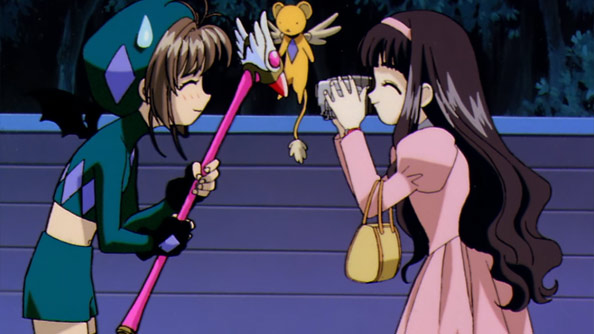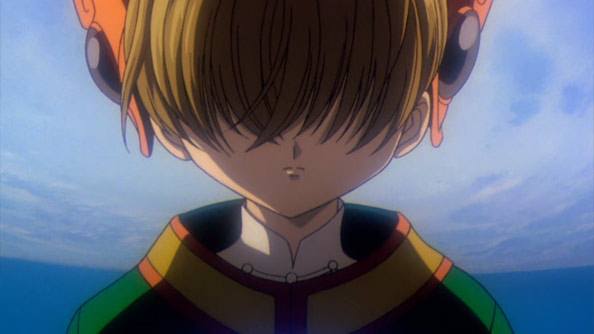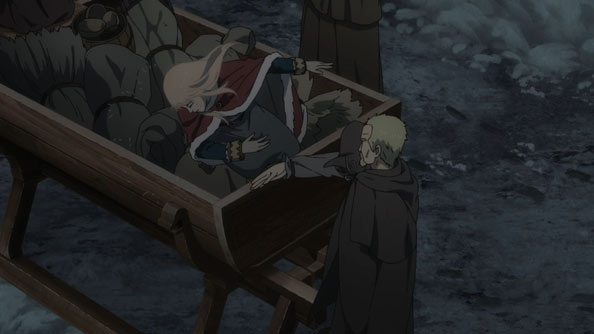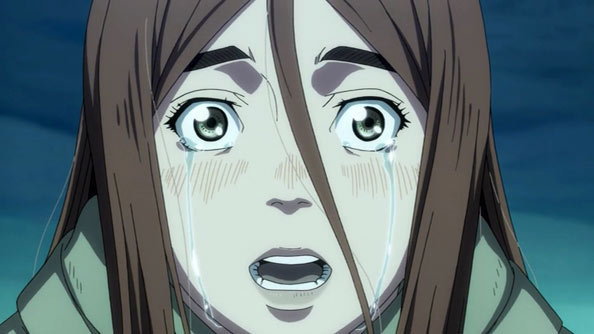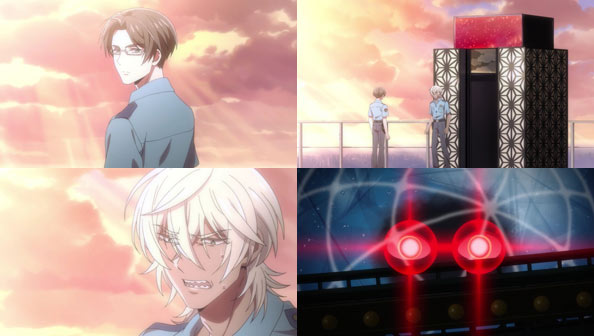Lord Aldarp grudgingly welcomes Kazuma, Megumin, and Aqua to his mansion to investigate the noble thief, but only because he still has the hots for Lady Dustiness. He’d even set up a magic mirror to view her in the bath, which Kazuma condemns while vowing to spend the night there. Darkness smashes the mirror, but it’s only the start of her troubles.
Between Aqua stuffing herself and getting loaded on all of the lord’s booze, Megumin frightening the residents of the city with her practice Explosions, and Kazuma essentially lazing about, Aldarp gets more than he bargained for. That said, I did enjoy Kazuma and Megumin’s sweet interactions as the latter all but admits she was worried about him before inviting him on a “date”—which is just her casting Explosion and him carrying her home…which isn’t a bad time at all!

While grabbing a midnight snack, Kazuma encounter what he believes to be the noble thief, but it turns out to be Chris, who assures him she’s there for a very good reason. Kazuma insists that he doesn’t want to hear it, as he knows the more he learns, the more trouble he’ll get pulled into. Chris agrees not to tell him the next time they meet. Kazuma doesn’t want to hear it then, either!
He does have Chris cast Bind on him to make it look like the thief got away, but when Aqua, Megumin and Darkness find him, none of them are in a hurry to untie him. Aqua first apologizes for breaking a bunch of his stuff while he was gone, while Darkness force feeds him flan and makes him apologize for putting her through so much hell throughout this trip.
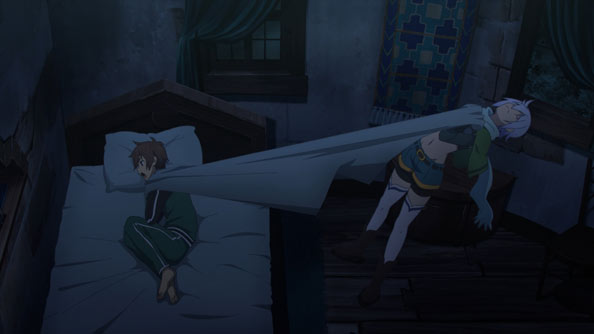
After making a report to Princess Iris, Kazuma and his party are denied further access to the castle and end up at an inn. Before that Mitsurugi Kyouya gives Aqua the gift of a beautiful sapphire ring, but Aqua forgot who he was, and the ring doesn’t fit. Then in the middle of the night Chris visits Kazuma again to tell him what she’s been up to, whether he wants to hear it or not: she’s been collecting “divine treasures”, i.e. cheat items like the one that created money. She wants him to help, but he’s unenthusiastic about doing so.
Then an alarm sounds, indicating another Devil King’s Army attack and calling all high-level adventurers to joining the knights in repelling the attackers. At first Kazuma has no interest, leading Darkness to call him a coward, but then she begs him to help her get Aqua out of bed and keep Megumin from running off and Exploding everything.
Kazuma eventually determines that if he puts on a good show in this battle, he might just be allowed to live in the castle again, which is currently his primary goal in life. So he suits up, grabs Aqua kicking and screaming, and leads the party to the city gates where the other forces are stationed.







